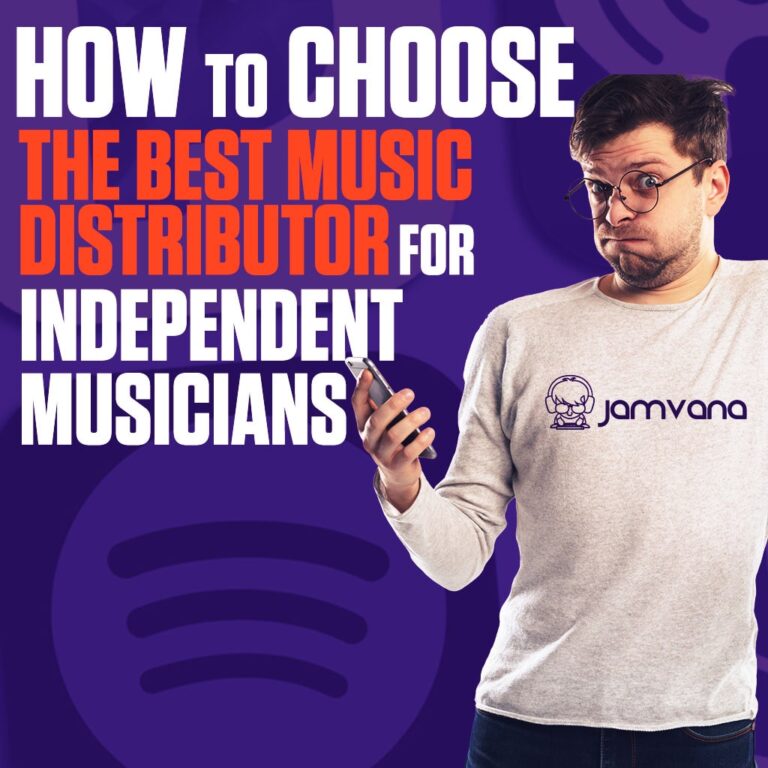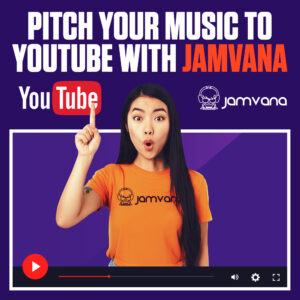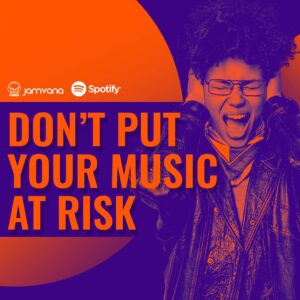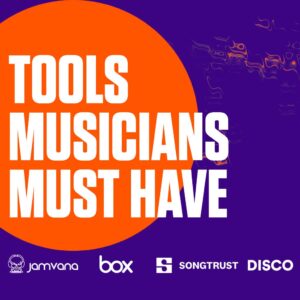With so many music distribution companies available, it’s hard to pick the right one for you and your music. It can be overwhelming to sift through the seemingly endless questions: What do you look for? What’s good? Is it free? Do they take a percentage of your royalties? Do they charge monthly or yearly? Do they provide additional services, such as playlisting?
In this article we’re going to be answering a few of the common questions an independent musician should ask themselves before and as they’re digging into the research.
Quick side note: If you’re signed to a label or releasing a track through a record label, then they will distribute your track for you.
We also discussed this topic on The Vana Room podcast.
Pricing
“This sounds great, but how much is this going to cost me?”
Us independent musicians don’t have a lot of extra dough laying around—but we can if we set everything up correctly.
One of the first things you’ll want to figure out before deciding on a music distributor is figure out how their pricing is structured. Are they charging monthly, yearly, free for a fee, or per release?
Let’s discuss what each one means.
Monthly
Some music distributors offer a monthly subscription fee, such as LANDR and Jamvana. This can be costly in comparison to other services because most musicians only release a handful of tracks or one album per year.
However, if you can afford it and the services and features that the music distributor offers would be helpful to your music then this may be a good option.
Jamvana, for example, offers a suite of features with the monthly subscription. You receive detailed and transparent royalty reports, a promo email platform, pre-saves, and so much more. Sign up with Jamvana here.
Yearly
Yearly pricing plans are the most common for music distributors. DistroKid, TuneCore, and CD Baby all offer yearly pricing.
Depending on the distributor, their yearly fee will cover everything you need to get your music released on the digital service platforms.
Some distributors with this pricing structure may limit you to the number of releases you can distribute per year, and some will allow for unlimited releases.
Free for a fee
Some music distribution companies will have a free tier at the cost of keeping a percentage of your royalties. RouteNote offers this.
With a distributor like RouteNote, you’re able to release an unlimited number of tracks but they will keep a percentage of what they collect. If you’re just getting started and don’t have the extra budget to throw at a monthly or yearly subscription for a distributor, then this may be a good option.
However, if your track starts to do well and gain traction then this may not be a good idea in regard to pricing.
For example, if your track “XYZ” gets 5,000 streams on Spotify, which equates to roughly $20, then 15% of that isn’t too bad. But if your track gets 1 million streams on Spotify, which would be about $3,000-$7,000, 15% is a big chunk to give to the distributor. Even at $3,000, that would equate to roughly $450, which is quite expensive for distribution for one track.
Per release
Some music distribution companies will charge a certain amount per release. RouteNote also offers this.
Rather than paying a monthly or yearly fee, you simply pay a specified amount per release. The way this works with RouteNote is that you’ll pay a one-time fee of $9.99 for the track you want to “upgrade.” Once complete, they’ll no longer take 15% of your royalties and you’ll keep 100% of them, in addition to a few other perks.
Takedown requests
Sometimes our music no longer reflects our sound or there’s a conflict between two collaborators, so we need to take a track or album down from the streaming services.
Before signing up to a music distributor, you should find out how they handle these requests. How long does it typically take to process? Is there a specific department you contact? Do the takedowns cost anything? If so, how much?
Add-on services
Add-on services in music distribution are small upcharges that give your track or album additional features. For example, the price of sending your music to Shazam isn’t included in the monthly or yearly fee you pay. Instead, you can add-on distribution to Shazam for $1.99 for a single.
Depending on the distributor, there may be a handful of add-ons you can select from. Check which add-ons, if any, the distributor offers before signing up to see if any of them would be beneficial for your music.
Miscellaneous expenses
As mentioned above, distributors will quite often provide add-on services. Some of them are clear and some of them aren’t. For example, you may have to pay to have your track taken down. You may also have to pay for ISRCs, UPCs, or even pre-orders. These can be costly for a single release if they’re in addition to a subscription plan.
Every music distribution company operates differently by providing different “upsells” or hidden fees. It’s best to determine exactly what’s included in your subscription plan and what is not.
Extra opportunities
Many music distributors function like a label these days by offering extra services in addition to distribution. For example, some distributors, mostly the ones owned by major labels, may upstream you into a label deal if your music is performing well.
Most distributors will offer in-house playlist pitching services. This means that they will actively send your music to DSPs’ playlist editors for inclusion on their high-profile playlists. Jamvana offers this. If a distributor takes a percentage of your royalties, then this is something that benefits you and them. The more streams they get on your track, the more their cut of your royalties is.
Some distributors may also help with marketing, and they act as a label services. If this is the case, then the distributor may take a percentage of your royalties in return. AWAL functions as a music distributor but also has a lot of label services for their artists.
Customer support
Customer support is one of the most important aspects of any company. Building a product and knowing exactly how it works means your company is the only one that knows the product inside and out.
Music distribution happens at all hours of the day, every day, 365 days per year. If you release a song on a Sunday morning and something goes wrong, is your distributor available to help? How are they available? Email? Chat? Phone? What’s the turnaround time to get a response? Chances are you are not interested in waiting 72+ hours to get a response.
This is one of the first things we recommend researching and confirming before signing up to any music distributor.
Direct or third-party services
Music distributors often have direct contracts with digital service providers. Some distributors have contracts with a third-party company like FUGA that handles the distribution to the service providers. There are pros and cons to each one, but the benefits of the distributor having direct contracts seemingly outweighs them not. Here are a few:
- Fewer middlemen: If a distributor uses another party to get your music onto service providers, then that’s one extra company to cause errors.
- Fewer hands in the cookie jar: Since that third party company is providing your distributor a service, they’re going to get paid. Who’s paying for it? Are they taking a cut of your royalties?
- Fewer chances of inaccurate reporting: If the distributor must get stream reports from the third-party company, then everybody’s waiting on that company. That company sends it to your distributor. Your distributor updates that report to reflect their cut (if any) of the royalties, and then sends it to you. This can delay reports by months—and leaves plenty of room for accounting error.
- Faster reporting: As mentioned in the previous point, the fewer the companies involved means that there’s quicker reporting.
How do I find a music distributor?
The best way to find a music distributor is to search “music distributor” on Google. Soundcharts has a great post going over the different types of music distributors. There are a number of really good music distribution comparisons available.
Which is the best independent music distributor?
The best independent music distributor is the one that works for you. While you may argue that one distributor has more features or better pricing, it’s not entirely accurate to say, “ABC is the best.” That distributor may not work at all for someone distributing Indonesian 1940s folk-styled jazz.
Which distributor is best for Spotify?
Jamvana is one of the best music distributors for Spotify. They are a Spotify-preferred music distributor, which means they are staying above the threshold of Spotify’s metadata and formatting requirements when delivering tracks.
Do music distribution companies own your masters?
No. Unless you’ve signed a music distribution deal with them that states they own your masters, you will retain all rights to your sound recordings/masters.
Do music distribution companies own your music publishing?
No. Music distribution companies typically do not handle music publishing. Your publisher (which is oftentimes you) will own your publishing.
What distributor do famous artists use?
Famous artists typically use major label distributors, which include INgrooves, The Orchard, and Caroline International, among others. These distribution companies are most oftentimes owned by the record label. For example, The Orchard is owned by Sony Music.






